Ceramics
Code: C0710-25
-
II
Level II
Students have a basic understanding of forming techniques, such as throwing and hand building. Students have taken one or two ceramics classes or workshops.
-
III
Level III
Students have significant experience with clay forming techniques, such as throwing, hand building and modeling. Students are comfortable with ceramics equipment, such as wheels, extruders and slab rollers. Students are self-starting with some formal training and have taken a minimum of three classes or workshops.
Clay in Color: Handbuilding with Pigmented Porcelain
Jul 14 - 25, 2025
9AM-5PM
Concept
Dive into the possibilities of colored clay bodies in this fun and experimental hand building workshop. Students create harmonious blends of color by mixing stains in clay and then use these to create dynamic sculptures. Through a process of experimenting and testing, students explore abstraction, texture, and color. Demonstrations focus on construction techniques and different methods for using colored clay. Students share and compare our work, discussing visual perception, color, and abstract ceramics. Students build their own catalog of color clay tests and a series of sculptures.
Media & Techniques
Mid-range porcelain, primary color mason stains, glaze, clay tools, scales, sieves, hand-building, mixing, color testing, cone 6 oxidation.
Faculty

Linda Lopez
Linda Nguyen Lopez is a first-generation American artist of Vietnamese and Mexican descent. Her abstract works explore the poetic potential of the everyday by imagining and articulating a vast emotional range embedded in the mundane objects that surround us. Her works have been exhibited at the Craft Contemporary Museum in Los Angeles, Museum of Art and Design New York, Crystal Bridges Museum of American Art in Bentonville, AR, and the Renwick Gallery of theSmithsonian American Art Museum.

Linda Lopez, Objects for Turn, Turn, Turn exhibition at Red Arrow Gallery
Workshop Details
Workshop Supplies
For general information about studio access, shipping, and more, please visit our info page.
If you have any questions regarding your supplies for your workshop, please contact Joanne Seongweon Lee, [email protected].
Provided by Anderson Ranch
Equipment
- Blenders
- Containers
- Individual Tables
- Kilns
- Scales
- Sieves
- Spoonulas
- Water Buckets
Supplies
- Black Sharpie**
- Blue Tape**
- Clear Glaze
- Mason Stains
- Nitrile Gloves
- Plastic for Covering Works
- The clay allowance is 125 pounds for this two-week workshop. Only the clays and glazes chosen for the workshop will be available for use, which are predetermined by the instructor. Please do not bring additional clay from your studio.
What you need to bring
Required Tools and Supplies
- Apron and/or Towel**
- Basic Pottery Tools**
- Calculator/Phone Calculator
- Favorite Pottery Tools From Your Home Studio
- Mason Stain: Bermuda 6242 (0.5lb)
- Mason Stain: Best Black 6600 (0.5lb)
- Mason Stain: Chartreuse 6236 (0.5lb)
- Mason Stain: Dark Turquioise 6374 (0.5lb)
- Mason Stain: Ivy Green 6223 (0.5lb)
- Mason Stain: Mango 6030 (0.5lb)
- Mason Stain: Tangerine 6027 (0.5lb)
- Respirator/N-99 Dust Mask**
- Sketchbook/Notebook**
- Spatuals
- Spoonulas
- Zipblock's: Small and Large
Optional Tools and Supplies
- Mason Stains. Anderson Ranch will provide a limited amount of Mason Stains. Students are welcome to bring their own.
- Packing Materials**
- T-Shirt for Screen Printing**
* Available for purchase in the studio.
** Available to purchase at the Anderson Ranch ArtWorks Store for 10% off. The store aims to stock comparable items, though specific products from the supply list may vary based on inventory.
Learn more about shipping supplies and artwork to and from the Ranch in the Student Handbook.
Lodging & Meals
Housing is limited and includes shared and private lodging options. Reservations will be managed on a first-come, first-served basis. The earlier you reserve housing, the better your chance of receiving your preferred option. Please note: Workshop costs do not include accommodations.
NEW: Course fees includes a welcome dinner and lunches. In our effort to foster a stronger sense of community and accessibility at Anderson Ranch, we include the welcome dinner and all lunches as part of course fees for summer workshop students. Our hope is that this adjustment will encourage all students to come together to share meals and engage in meaningful conversations. The Ranch Café Meal Plan, which is included with Room and Board fees, strives to provide healthy, creative meals that will nourish your artistic creativity. Learn more.
We have established a Business Safety Plan with added layers of precaution that prioritize the health and safety of our staff, students, faculty and guests while continuing to provide you with the Anderson Ranch experience that you know and enjoy.
Ceramics
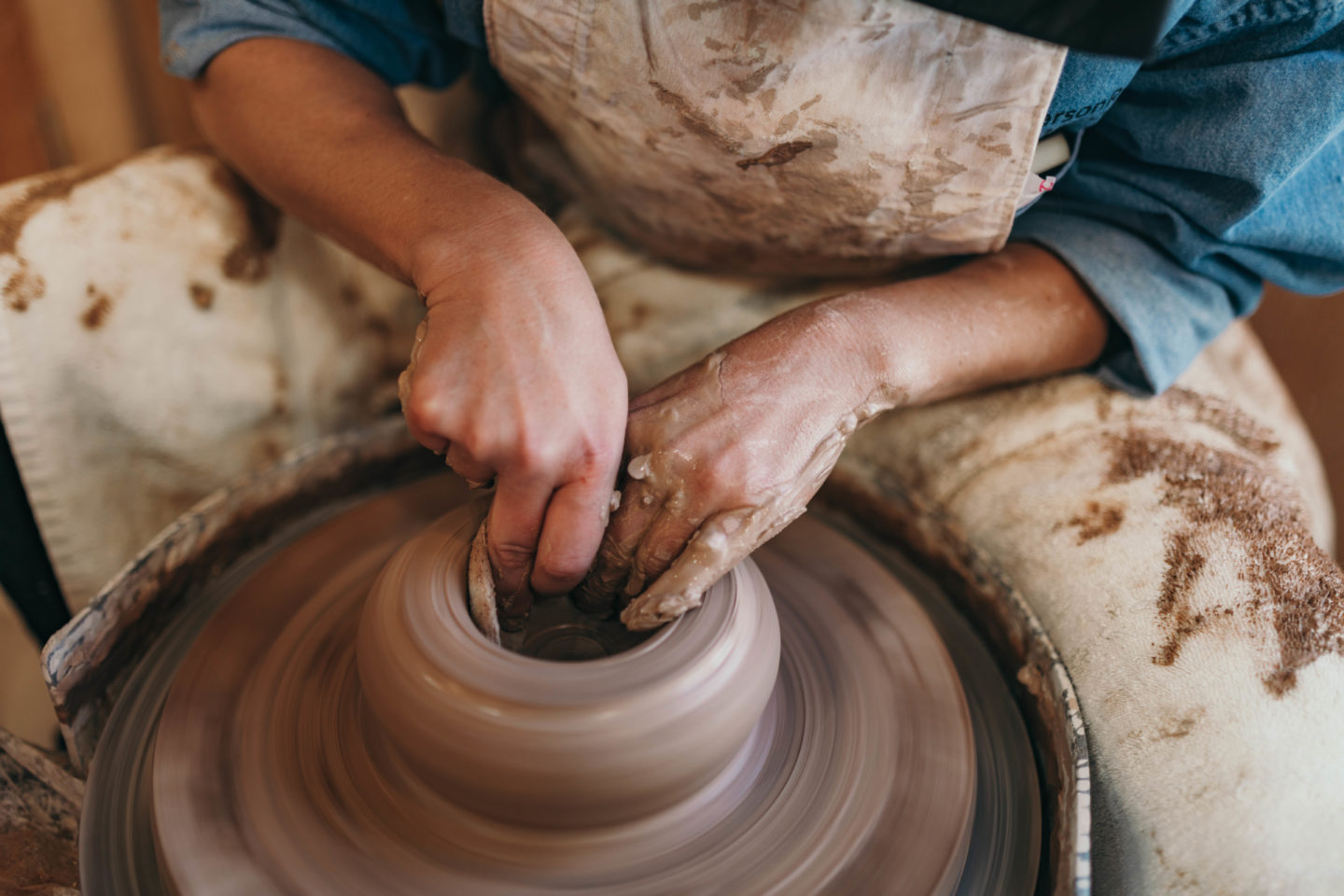
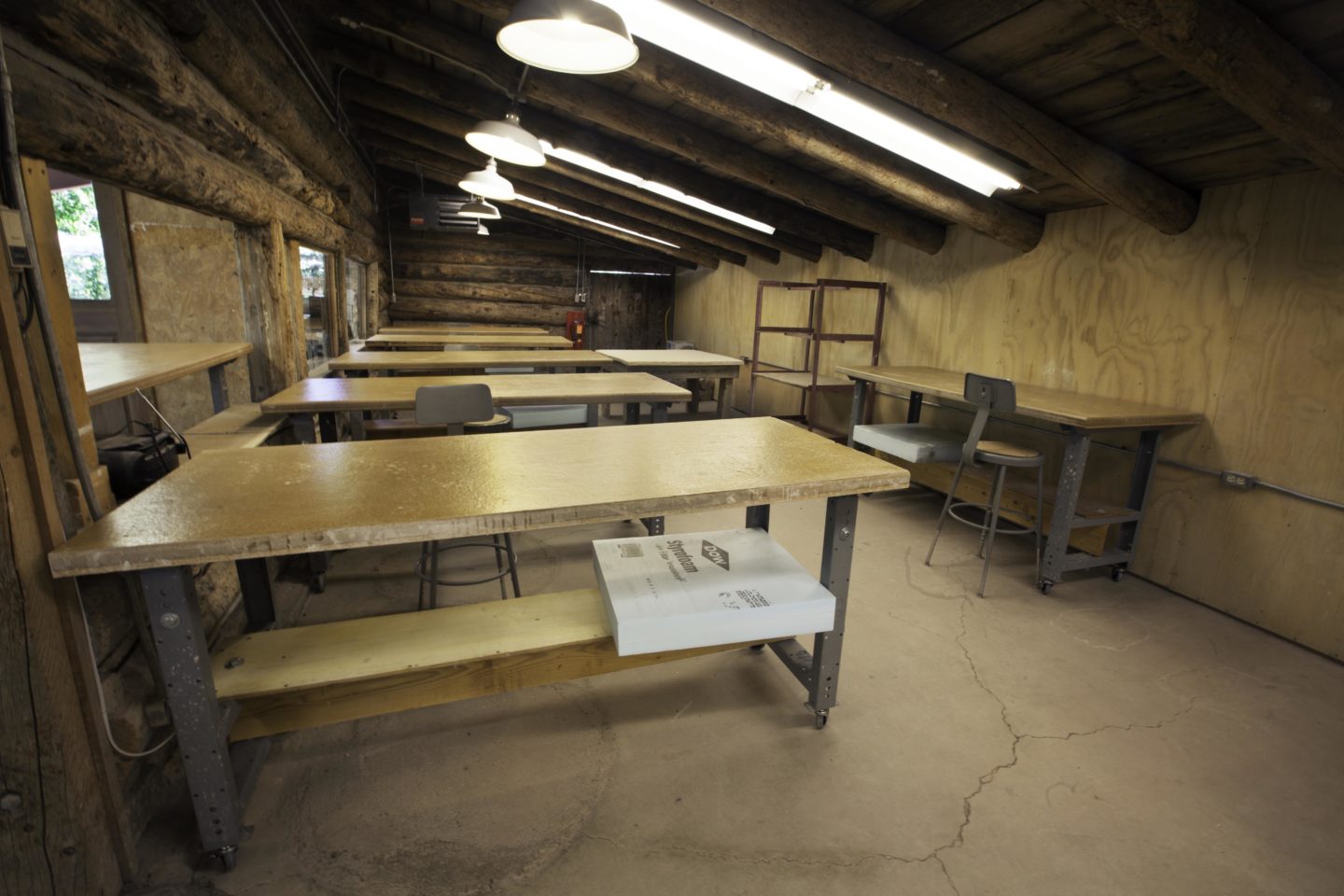
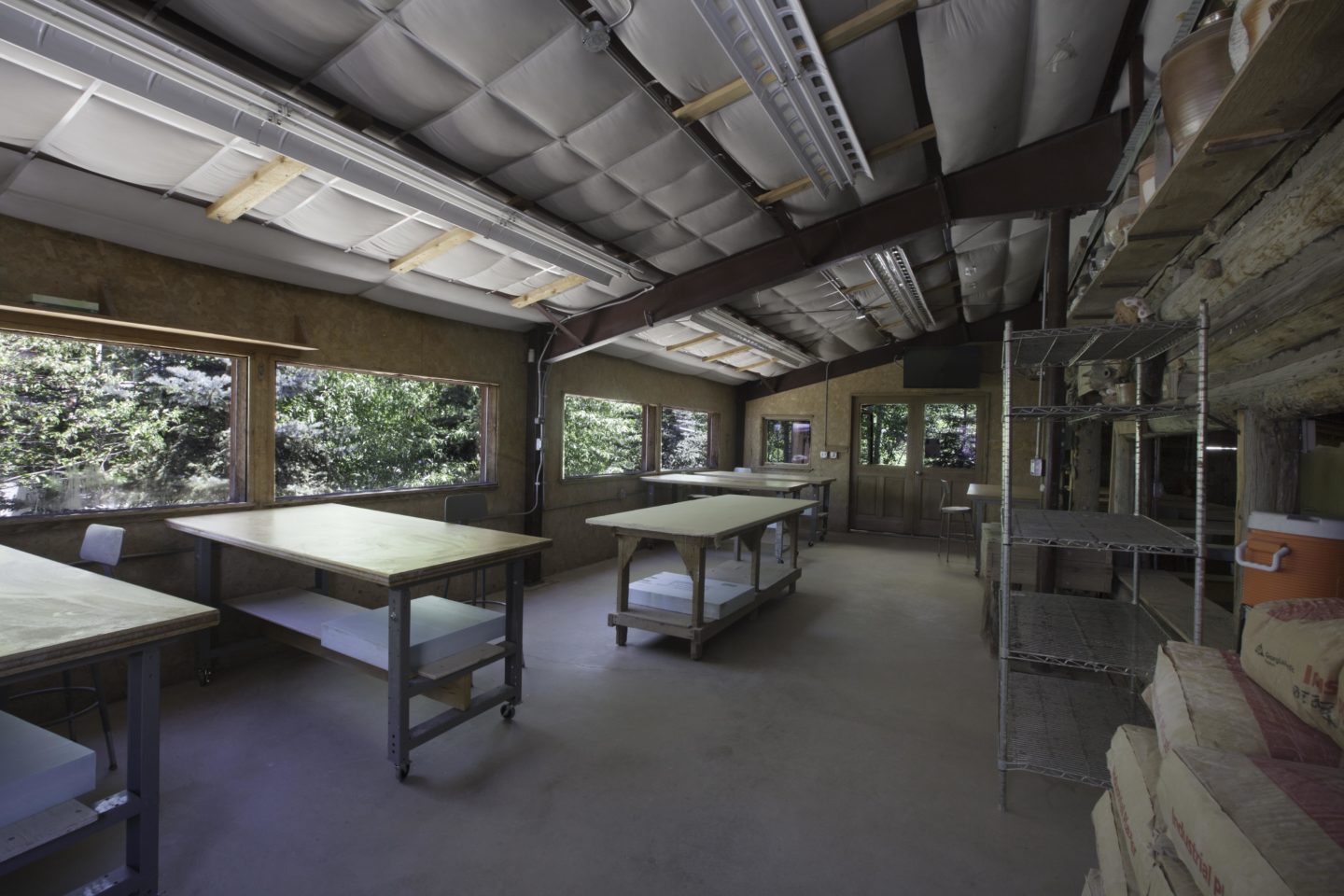

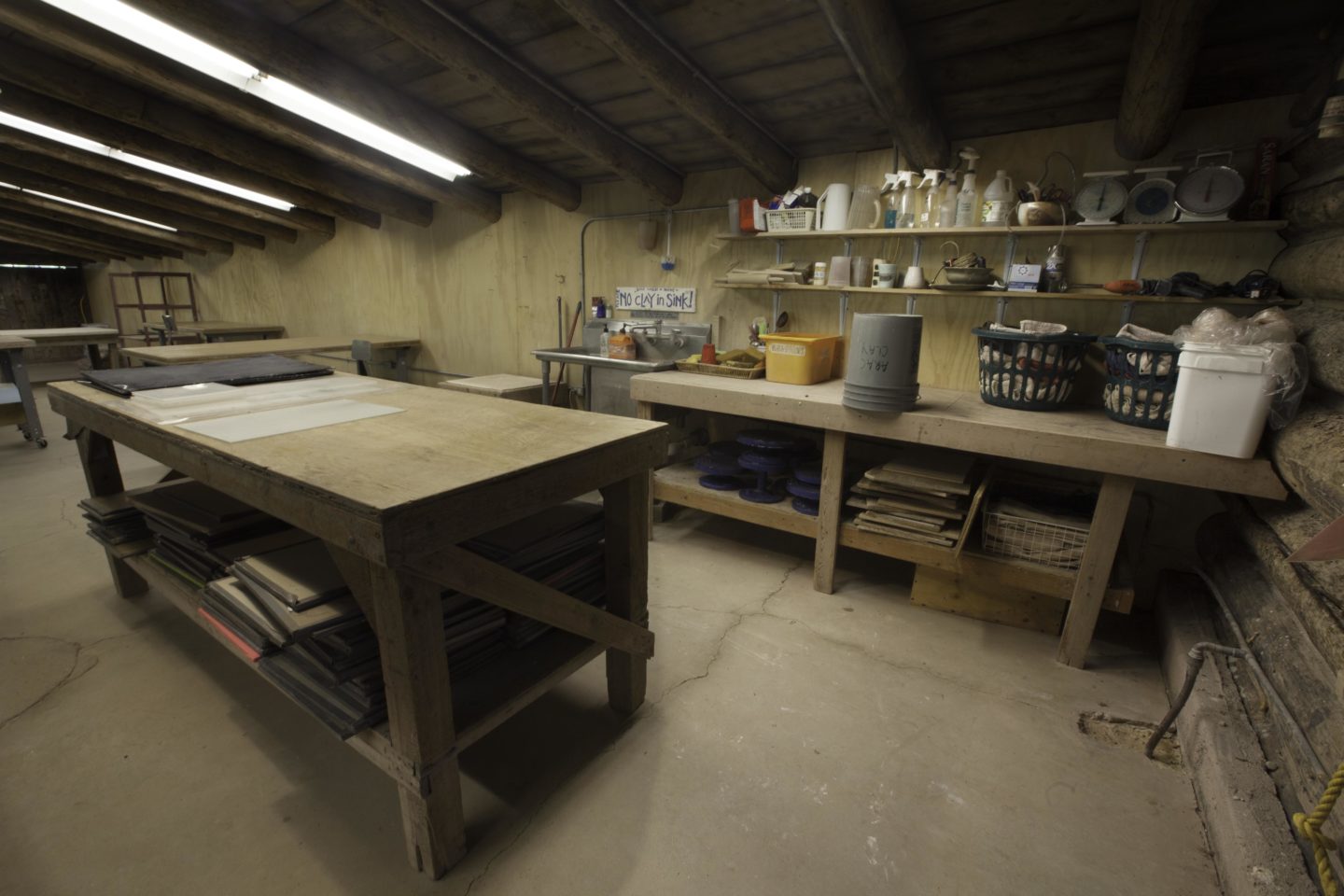
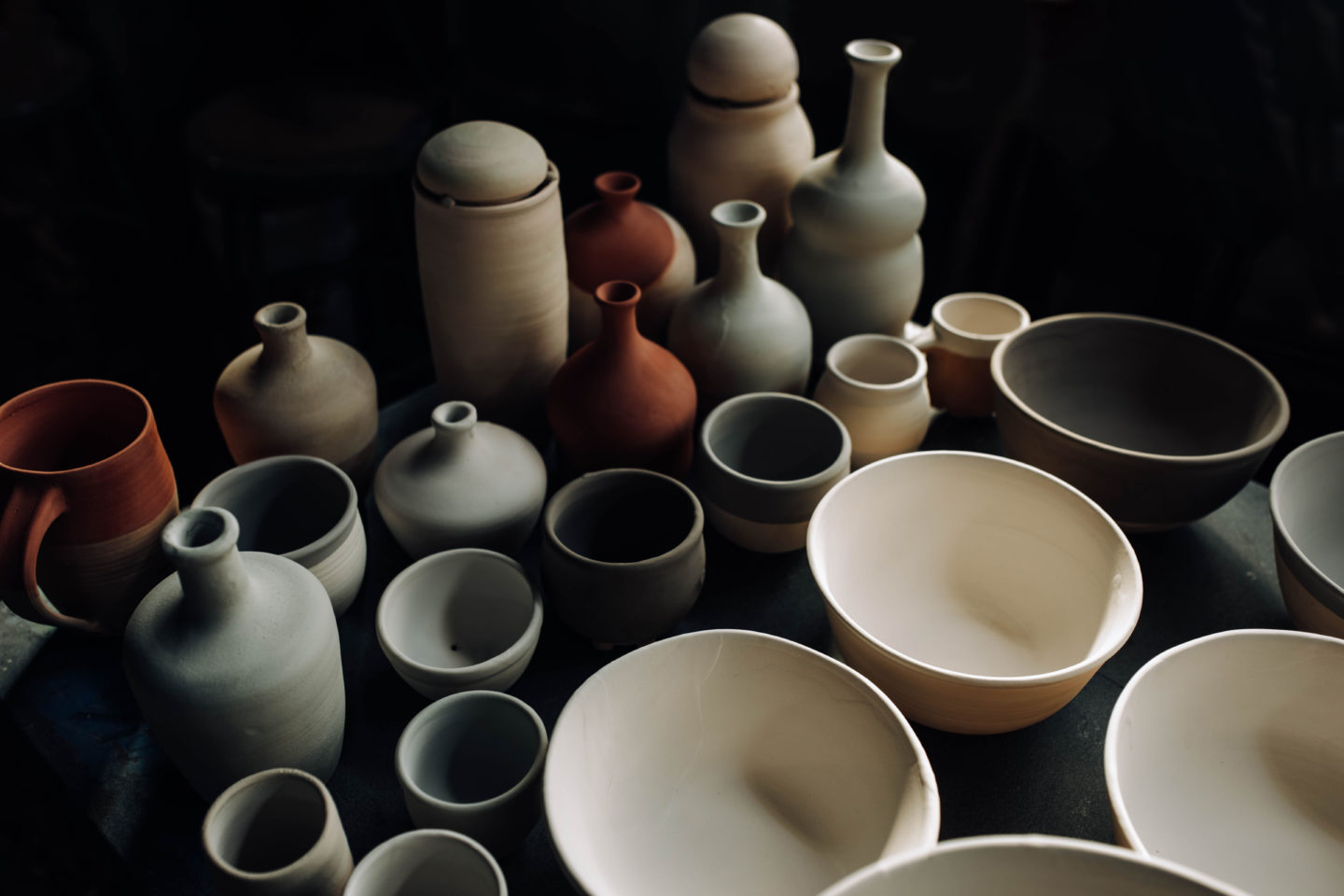

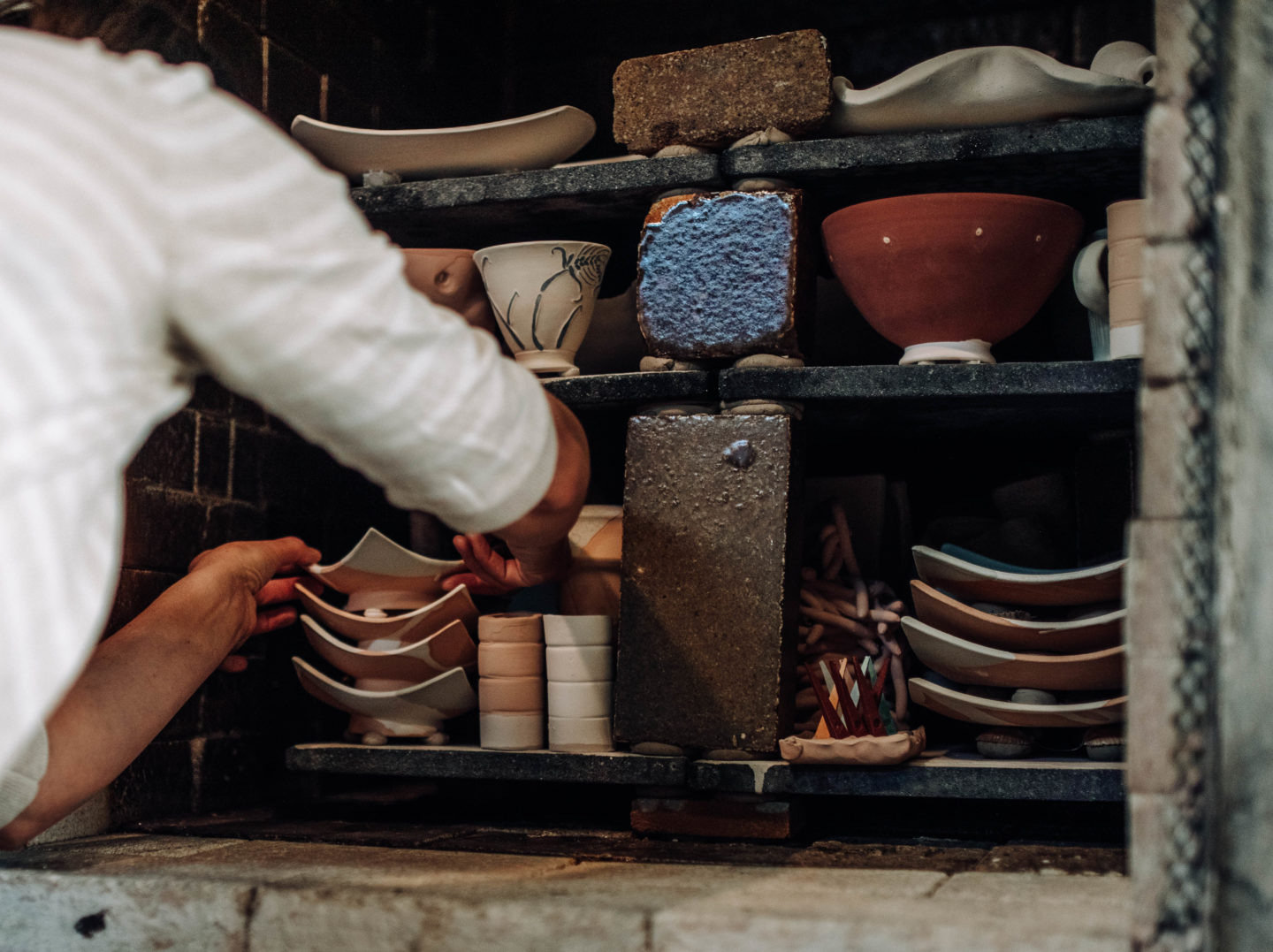
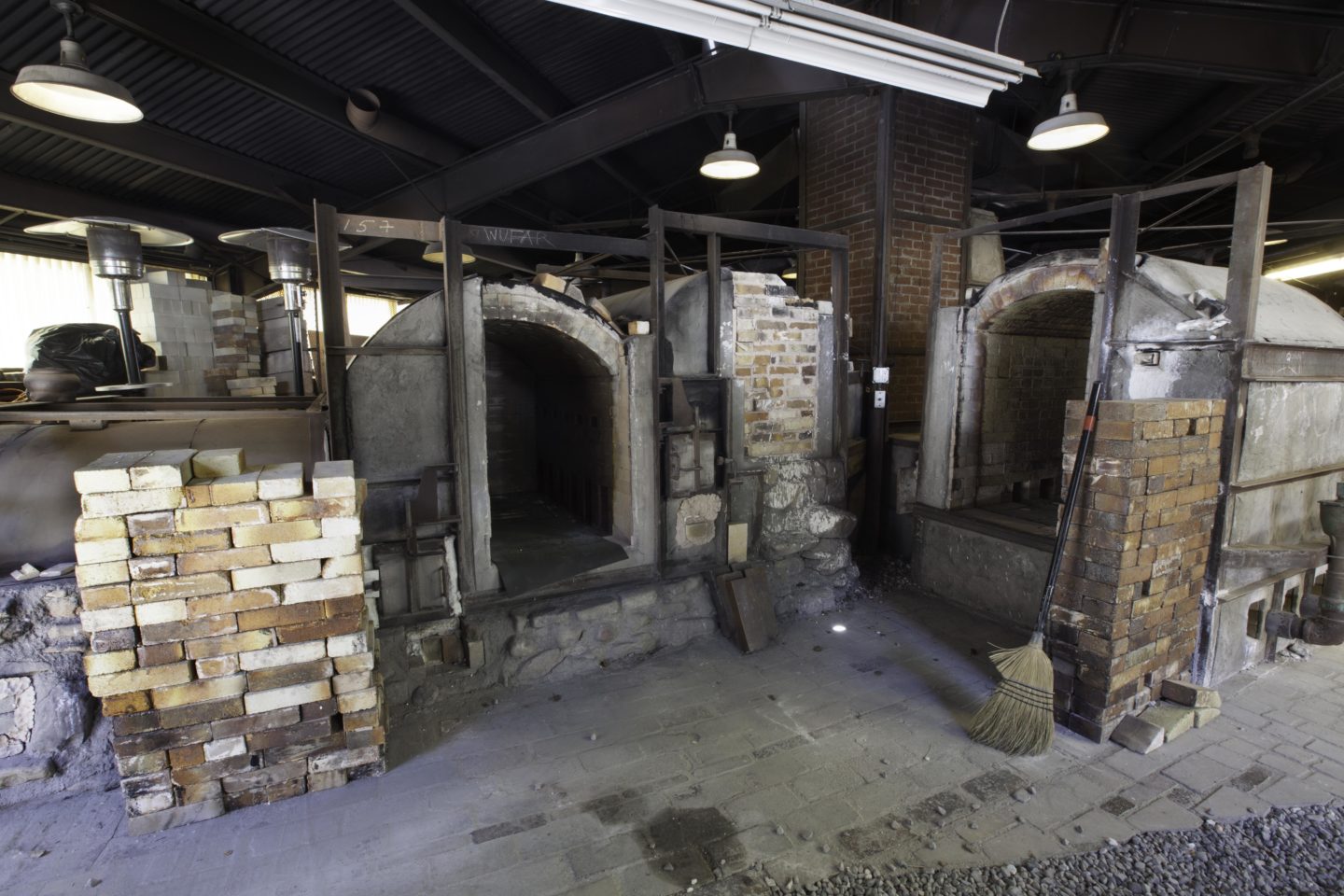
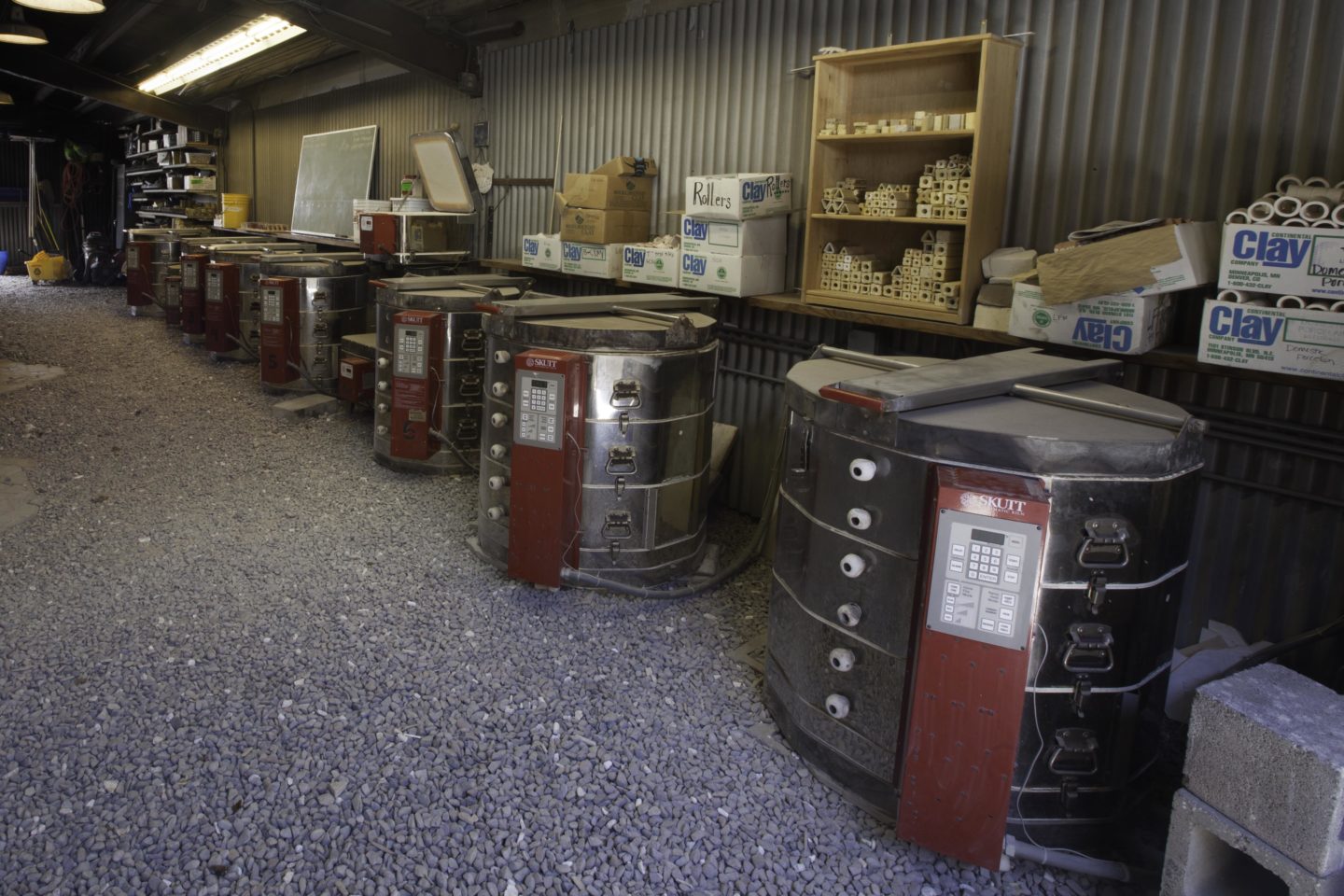
In 1966, American ceramicist Paul Soldner selected the site for what is now Anderson Ranch Arts Center, forming the foundation for a thriving ceramics program. Then and now, Anderson Ranch is a place where students exchange ideas and examine ceramic art and pottery techniques. It has always been a place where seminal moments of growth happen in an artist’s creative and critical thinking. Here, both beginning and emerging artists gain strong fundamental support, while established artists achieve new perspectives and advance their techniques.
The Ranch Ceramics team provides support, feedback and technical problem-solving, giving each artist the freedom to experiment and grow. Our primary focus is on personal advancement through a process of creative discovery.
The Soldner Ceramics Center makes up more than 10,000 square feet in three buildings with 3 studio spaces and 1 kiln yard; Soldner Studio, Long Studio, Sorenson Studio and Lyeth/Lyon Kiln Building. Soldner and Long studios are used for wheel-throwing, hand-building, or general ceramics creativity. Sorenson studio is equipped with five PotterBot 3d clay printers. The Lyeth/Lyon kiln building is equipped with gas, electric, soda and wood kilns for both oxidation and reduction firing at all temperature ranges. The Ranch offers three wood kilns including a gas/wood hybrid kiln, three gas reduction kilns, one soda kiln and eleven high-temperature electric kilns.
Don’t know where to start? View the skill levels for ceramics workshops.
Anderson Ranch Arts Center is a historic, rustic campus that features gravel pathways and uneven terrain that may pose challenges for individuals using wheelchairs or other mobility devices. We strive to provide accommodations to ensure all guests can access and enjoy our programs and facilities. With advance notice, our staff can offer personalized assistance and coordinate access to studios and campus spaces. For questions or to request an accommodation, please contact us at (970) 923-3181 or [email protected].
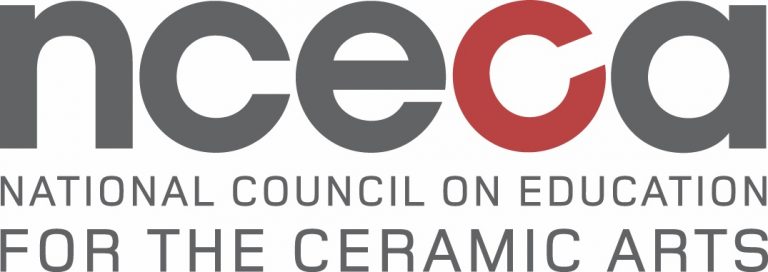
Anderson Ranch is happy to extend a 20% tuition discount for summer one- or two-week adult ceramics workshops for NCECA members at the student membership level or above. Please email [email protected] with your NCECA membership information prior to registering and we will send you a promo code to complete registration with your discount applied. You are also welcome to call 970-924-5089 to register after verifying your membership with us. **Please note, this discount must be approved prior to registering and cannot be applied retroactively. NCECA discount does not apply to Advanced Mentored Studies programs or Destination Workshops, nor can it be combined with any other discount, scholarship or special offer.
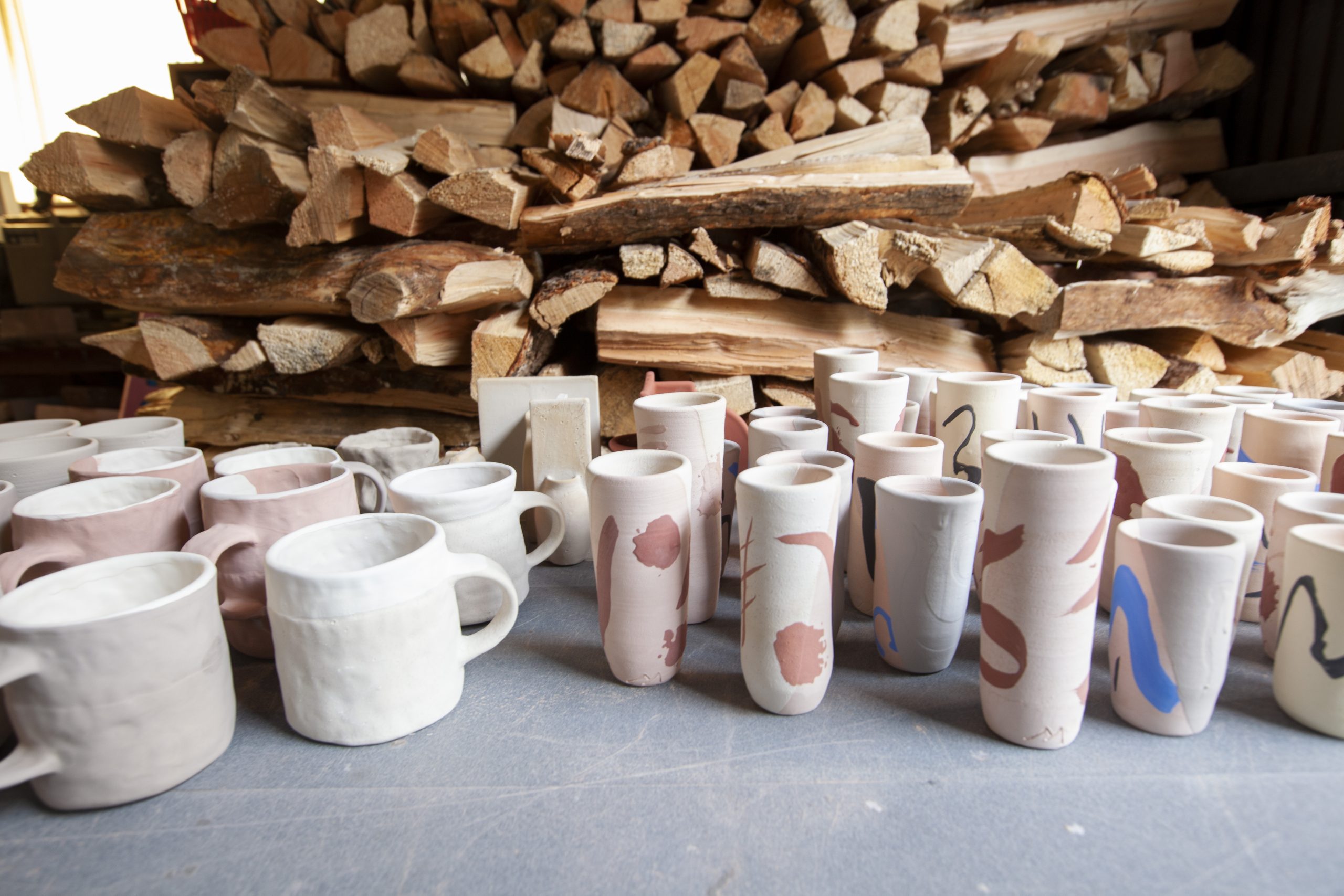
Scholarships, College Credit & Discounts
Making Art Accessible
Applications for scholarship support are encouraged. Specific scholarships are funded by Ranch supporters, either through endowed funds or special gifts.
Many colleges and universities offer college credit for workshops taken at Anderson Ranch. Discounts are available for students and teachers.
You Might Also Be Interested In
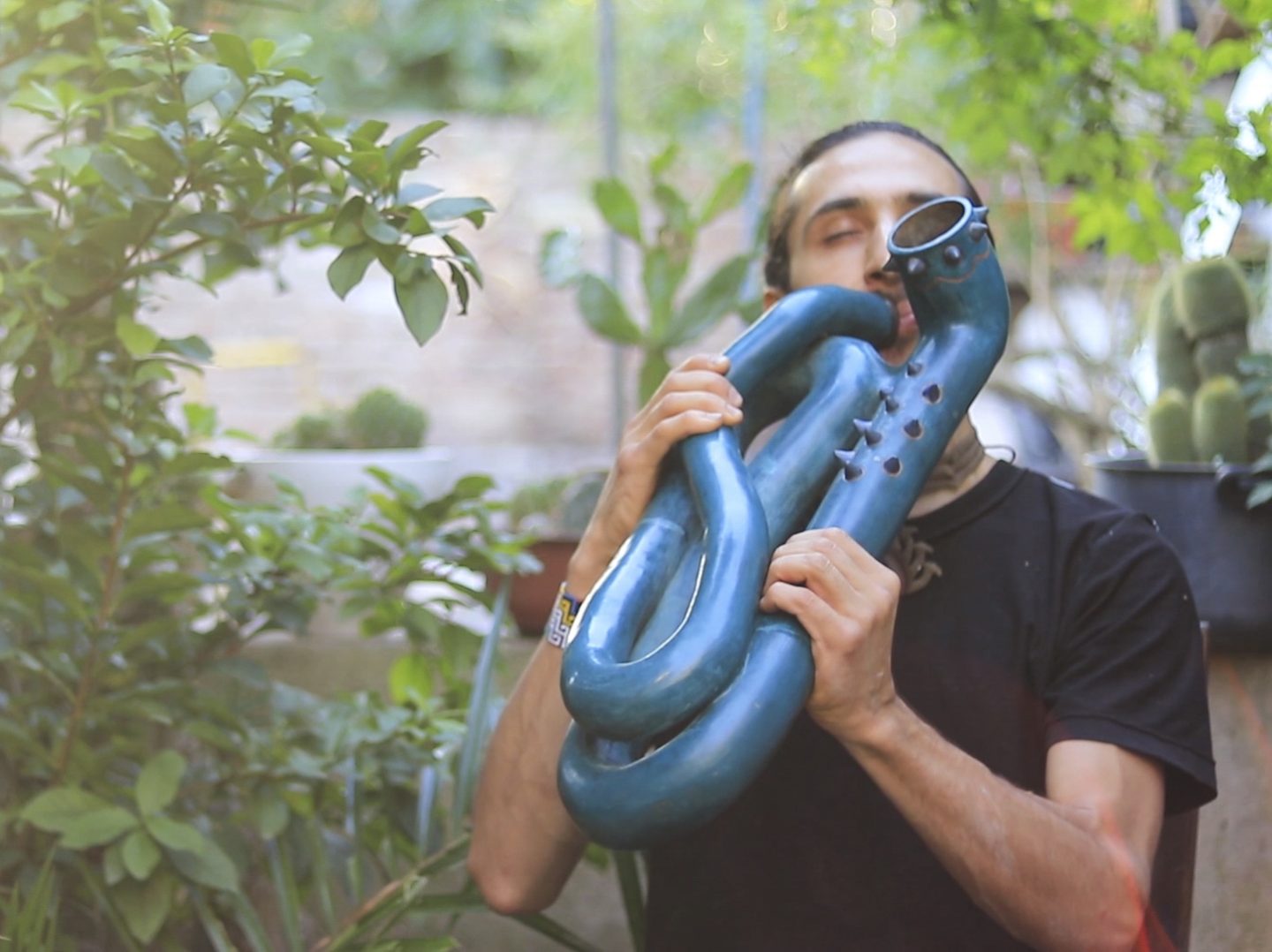
-
O
Open to All
Students of any skill and knowledge level.
-
Virtual Workshop
Virtual Workshop, learn from the comfort of your own home.
Dec 13, 2025
9:00AM MST
1PM ART, December 13th
All Virtual Ceramics Workshops are 2-2.5 hours long
VIRTUAL WORKSHOP
Resonate Form: Designing and Building Ceramic Sound Sculptures
Julieta Bilbao, Martín Gastón Merlos
Tuition $60
Code VFC5004-25
Immerse yourself in the fascinating world of aerophone sounds and ceramic sculpture. This workshop is designed for both beginner and advanced artists to learn techniques for creating works that engage both the ear and the eye. Discover how to generate a variety of sounds through the design and construction of unique ceramic sculptural forms inspired by ancient pre-Hispanic cultures. During the session, we focus on the sculptural modeling of forms and figures. We begin with a globular vessel as the initial module, using the pinch-and-pressure modeling technique. We then delve into the world of aerophones by designing a sound system within our sculptures. Participants learn how the shape and size of the resonating chamber will influence the resulting sound, giving the artwork symbolic and aesthetic meaning. Join us for this unique experience where ceramics and sound merge to create a piece that resonates with your senses and emotions. This workshop meets virtually via Zoom Video Conferencing software (downloadable for free from Zoom.com) and will be conducted in Spanish, with live, real-time English translation included. Review our Virtual Ceramics Workshop Welcome Guide to learn more about the workshop details. *Please note that registration will close on December 12th at 5pm. Only workshop participants will have access to the recording for 60 days.

-
P
Portfolio Review Required
Students have advanced skills and knowledge of the ceramics field. Students are highly motivated, have a minimum of five years experience in the field and have a portfolio of their artwork. Typical students are academics and professional artists.
-
S
Facilitated Studio Practice
Jan 5 - 23, 2026
Monday-Friday, 9AM-5PM
Participants can only register for three weeks
TUITION is $3,765
January Studio Sessions: Ceramics
Joanne Lee
Tuition $3,765
Code ZSC0101-26
Anderson Ranch’s January Studio Sessions provide artists the opportunity to work on independent projects while receiving mentoring and critique sessions with Anderson Ranch artistic staff and interns. Each participant receives an assigned studio space, orientation, and access to equipment, as well as some morning group demonstrations and / or critiques. This program affords artists the experience enjoyed by national and international artists who access our state-of-the-art studios. Participants may expand their practices, take artistic risks, try new media or complete works for exhibition. *Studios are open 24 hours a day and on weekends for students enrolled in multiple weeks, with limited use of equipment due to safety requirements. The machine rooms are only available when monitored – weekdays 9 AM-5 PM. Evening monitoring hours are Mondays - Thursdays, 7 – 9 PM. IMPORTANT DETAILS: Students will be responsible for all material costs associated with their projects. Participants who register for multiple consecutive weeks will gain access to the studios on weekends (with the exception of the machine rooms due to safety constraints.) Private dorm rooms are available at Anderson Ranch for one, two or three weeks for an additional fee; click here to view January 2025 lodging options. TO APPLY: Applicants must submit project proposals or portfolios for approval. Contact Betsy Alwin to apply: [email protected]
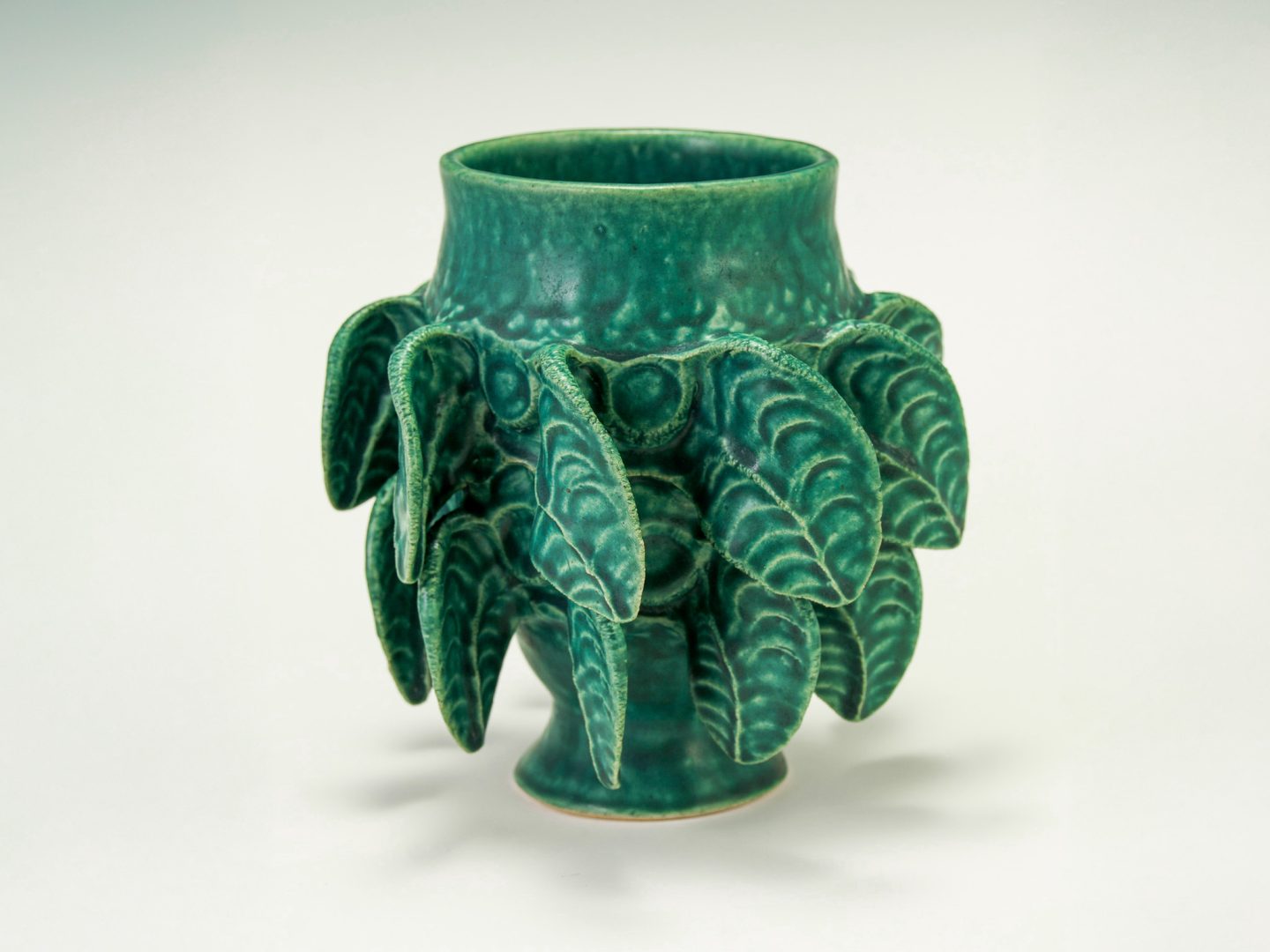
-
I
Level I
Students are new to ceramics and have no formal training.
-
II
Level II
Students have a basic understanding of forming techniques, such as throwing and hand building. Students have taken one or two ceramics classes or workshops.
Jun 1 - 12, 2026
9 AM - 5 PM
Hand Turned Ceramics
Paul Briggs
Tuition $1,795
Code C0101-26
This class teaches unique pinch forming methods that resemble how clay is pulled up on the wheel. Through patience and practice, students learn how to achieve scale and bold form, and move beyond the usual 3" pinch-formed pot to pinch up to 5lbs of clay, growing a pot from one ball without adding or subtracting material. Creating both functional and sculptural objects, we engage in the merging of ideas and form, of merging inside and outside, and of subtle metaphor. Glazing and firing will be mid-range oxidation.


